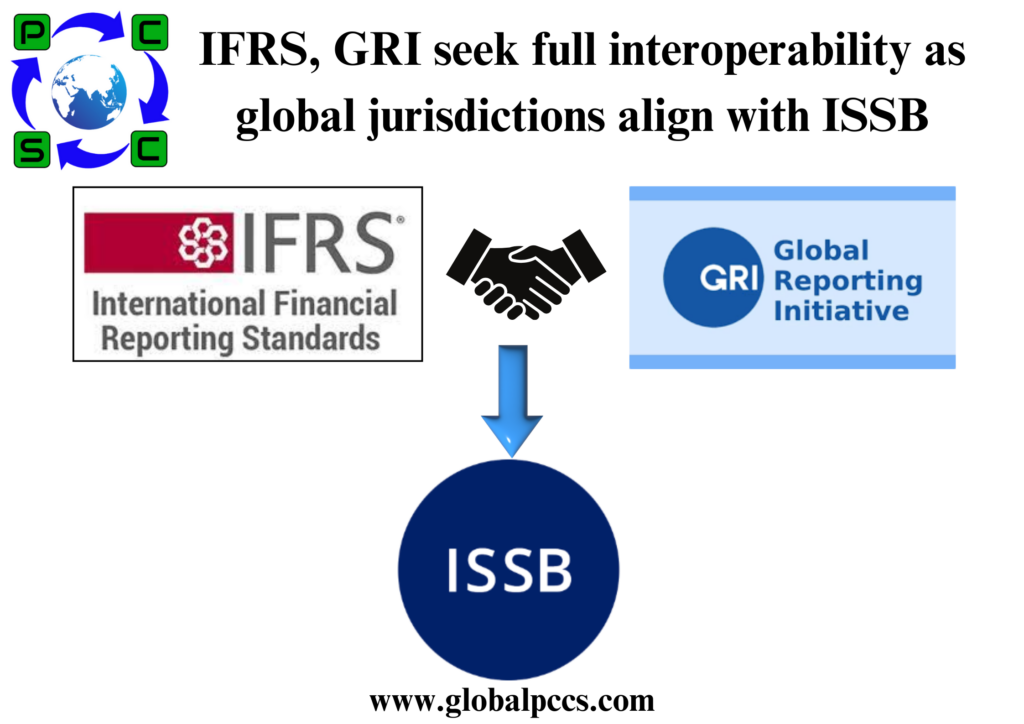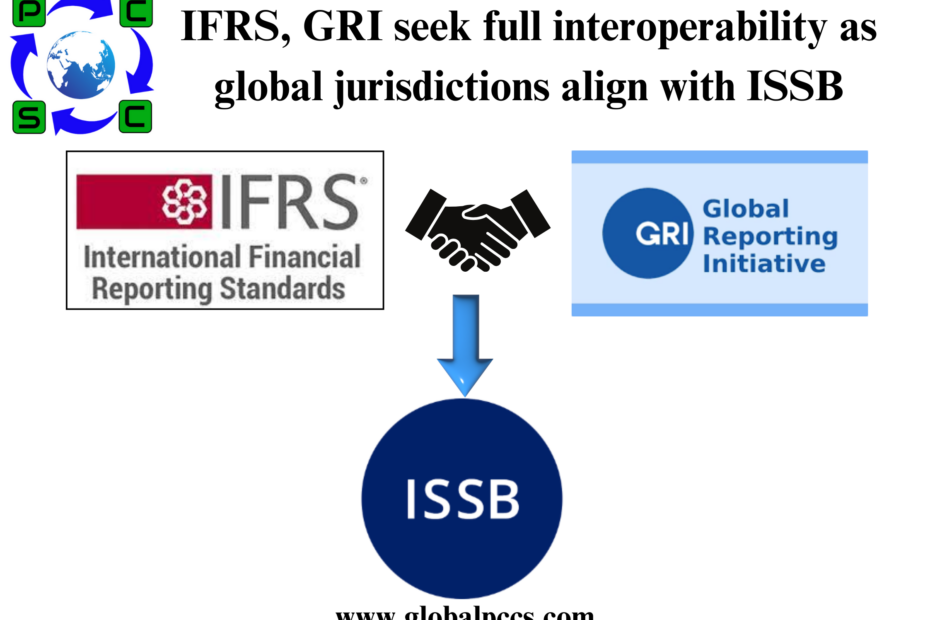 The International Sustainability Standards Board’s sponsoring organisation also stated that 55% of the world’s GDP is distributed among the countries that conform to its principles.
The International Sustainability Standards Board’s sponsoring organisation also stated that 55% of the world’s GDP is distributed among the countries that conform to its principles.
With three announcements that demonstrate its expanding efforts to advance the ESG reporting environment, the International Finance Reporting Standards Foundation, a global standard-setter for accounting and sustainability reporting.
Both the International Accounting Standards Board and the International Sustainability Standards Board are administered by IFRS. A number of ESG reporting groups, notably the Task Force on Climate-related Financial Disclosures, were acquired by ISSB in the last several years. The first IFRS S1 and S2 reporting frameworks were made available by the organisation last summer.
Less than a year later, according to IFRS, countries accounting for over half of the global GDP are aligning or adopting the requirements set forth by the ISSB into their corporate sustainability report legal or regulatory frameworks. Twenty jurisdictions, or over half of the world’s greenhouse gas emissions, have indicated some level of alignment, and last week, IFRS released guidance for any jurisdictions wishing to follow suit.
95% of the world’s securities market regulators are members of the International Organisation of Securities Commissions, which gave the rules early support.
China’s latest draft sustainability standards and the Corporate Sustainability Reporting Directive of the European Union are two examples of jurisdictions that have attempted to fully adopt or comply with ISSB’s criteria. The Securities and Exchange Commission acknowledged that the ISSB requirements were similar to its own, but it refused to accept them as a replacement for the agency’s halted climate disclosure rule.
GRI, IFRS working towards full interoperability
According to GRI, on May 24, they will work towards achieving complete compatibility between IFRS and the Global Reporting Initiative, which will be the primary framework for sustainability reporting as of October 2022. GRI’s reporting framework adopts a double materiality approach, whereas the ISSB guidelines offer a single-materiality framework for businesses to disclose information pertinent to investors.
Despite their independence, the two organisations agreed to generally coordinate their programmes and standard-setting efforts in 2022 when they signed a memorandum of agreement. Both organisations will be able to concentrate on raising standards for their target audiences thanks to the growing relationship.
According to ISSB Chair Emmanuel Faber, “the ISSB’s focus continues to be on meeting the information needs of capital markets.” “Companies will be able to apply the ISSB and GRI Standards to facilitate reporting to a wider range of stakeholders in a seamless manner through this collaboration.”
The first area where the deeper collaboration will pay off is in biodiversity disclosures. As part of its new focus, ISSB is working on ecosystems, biodiversity, and ecosystem services. To develop a methodological pilot, it will build on GRI’s biodiversity standards.
IASB releases amendments for ESG-loan clarity
IASB announced changes to its financial instrument classification and measurement rules on Thursday in response to the increase in loans with ESG-linked features. According to the revised standards, “the characteristics of the contractual cash flows” should be the basis for measuring the value of loans with such attributes, as requested by stakeholders.
The clarification of the IFRS 9 and IFRS 7 standards’ revisions also pertains to the accounting treatment of those cash flows in loans featuring ESG-linked elements.








 Authorised IMDS & CDX Training & Consulting partner for
Authorised IMDS & CDX Training & Consulting partner for





